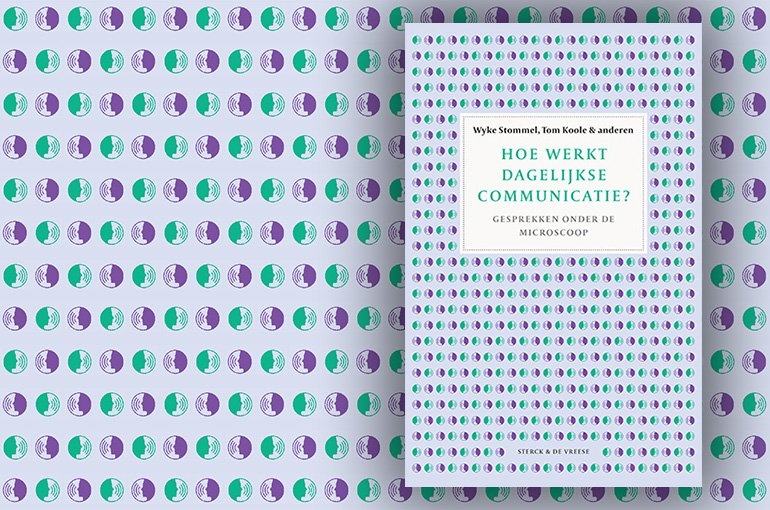Bad questions do exist - and other insights into everyday communication
Why do we often start a conversation with a greeting? Why do we feel the need to answer when asked a question? Why do we talk over each other, yet still pick up the right information? These and other questions about everyday conversations are answered by conversation scientists from the University of Groningen in the book 'How does daily communication work? Conversations under the microscope’, which was recently published.
Text: Marjolein te Winkel
We talk a lot every day, but most people don't really know much about how we exactly have a conversation. Conversation scientists do know. They are fascinated by the subtlety and sophistication of everyday conversations, such as the first thing you say to your partner when you wake up, asking your dining companion for the salt shaker, chatting with a friend, making a phone call to customer service, or the way a teacher addresses the class.
The wonder of everyday conversations
In the book 'How does daily communication work?', experts unravel everyday conversations. They show how astonishing our everyday communication is – both at home and in interactions with various entities, in healthcare, education – and how we can understand this wonder. They do this through everyday situations, including conversations at home, interactions in the operating room, and discussions in the classroom.
We learn that bad questions do exist, and how to recognise them. That 'uh' can mean different things. That the tradition of the King reading the Speech from the Throne exists thanks to the cooperation of the audience. That there is a moral obligation to answer a question, especially for politicians. That over the course of our lives, we learn the rules of a conversation, we follow those rules, and we use that knowledge to predict what the other person is going to say in conversations.
112 emergency center
"The general public is not very familiar with the discipline of conversation analysis," says Prof Mike Huiskes, professor of communication sciences at the University of Groningen and one of the authors of the book. "Yet, they encounter it more often than they might realise because it underlies some of our daily conversations. For example, when someone calls 112, they get asked: '112 emergency center. Do you want police, fire, or ambulance?'. This question is designed based on conversation analytic research."
With this book, the authors aim to introduce readers to their field and convey their fascination for conversations to anyone interested in how people interact with each other. Huiskes says, "Our social interaction is a marvel of coordination. We synchronise gestures and expressions so well and can read each other's communicative behavior so accurately, no computer system can match that."
About the University of Groningen authors
Dr Myrte Gosen, Roel van Veen, and Prof Tom Koole from the University of Groningen also contribute to this book. They study communication in healthcare, education, and public debate. In their latest joint research, they analyse the interrogations with residents of the earthquake area during the parliamentary inquiry into Gas Extraction in Groningen.
More information
How does daily communication work? Conversations under the microscope is published by Sterck & De Vreese. The book is written by the AWIA collective, a group of communication experts affiliated with the University of Groningen, Utrecht University, VU University, Radboud University, Utrecht University of Applied Sciences, Windesheim University of Applied Sciences, University College London.
ISBN 9789464711219 - €22.95

More news
-
14 February 2026
Tumor gone, but where are the words?
-
19 January 2026
Digitization can leave disadvantaged citizens in the lurch
